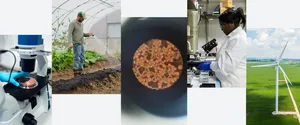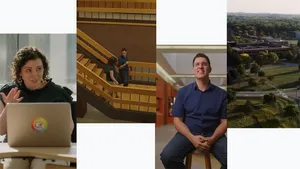Three years in: Our $1 billion Bay Area housing effort

The Bay Area is our home, and we’re helping our hometown communities solve challenging problems. In 2019, we committed $1 billion to help increase the Bay Area’s housing supply and support organizations on the front lines of homelessness. Over the last three years, we’ve been making investments and allocating land to help developers create new affordable housing units in all corners of the region.
A map of our current commitments from our $250 million affordable housing investment fund.

Investing $1 billion across the Bay Area
So far, we’ve allocated a total of $128 million of our $250 million investment fund to 18 organizations, which has supported the development of 23 affordable housing projects across the Bay Area.
A rendering of Meridian, a 90-unit affordable housing development, in Sunnyvale, California. Image credit: Steinberg Hart.

As part of our commitment to give $750 million worth of our land to housing development, we’ve worked closely with elected officials and residents to propose plans where residential units, offices, retail spaces and open space will coexist on our land. The San José City Council unanimously approved our Downtown West project in May 2021, which calls for 4,000 housing units. In addition, we’ve submitted plans for mixed-use developments in Mountain View and are working with city staff to have Middlefield Park voted on by Mountain View City Council by the end of 2022, followed by North Bayshore in 2023. Together, these plans consider a total of 8,900 housing units, which would be developed by a partner.
While we’ve made progress across the Bay Area through funding and land allocation, we know that's only part of the solution. Fighting the housing crisis requires innovation and collaboration across the community. So today, we’re also sharing how we’re using philanthropy to test new methods of intervention with trusted nonprofit leaders.
Using philanthropy to test innovative solutions
Over the next three years, we’re giving more than $10 million of our 2019 $50 million Google.org grant commitment and providing pro bono support to select Bay Area nonprofits. These organizations are starting programs to test the impact of cash transfers on housing stability for community members experiencing homelessness. With cash transfers, money is directly provided to people to spend on things like rent, medical expenses, food, or other day-to-day expenses. Our funding will go toward direct cash support, infrastructure for the nonprofits and randomized impact evaluation. This way, critical research can be used to have a systemic effect to assist in providing stable housing.
Google.org has been a longtime supporter of cash transfers, having distributed over $31 million globally, and providing over 235,000 households with cash support to improve their financial resilience and weather economic uncertainty. Research has shown that giving recipients the ability to decide how they spend their money leads to increases in economic and psychological well-being, physical health and household purchasing power. A randomized evaluation in Canada found a one-time cash transfer to individuals experiencing homelessness leads to quicker housing stability and spending fewer days unsheltered.
There is little to no research, however, of the effect of cash transfers on a demographic like Bay Area homeless communities. To better understand the impact, Google.org is supporting the Abdul Latif Jameel Poverty Action Lab (J-PAL) in partnering with several leading homeless service providers in the Bay Area. Through the Bay Area Evaluation (BAE) Incubator, providers are building their capacity to design and implement randomized evaluations of cash transfer programs.
In addition to J-PAL North America’s effort, Google.org is supporting some emerging cash transfer pilots:
- Bay Area Community Services (BACS), alongside UCSF, is running a longitudinal study aimed at determining the effect of cash assistance for 100 Oakland households on housing stability and homelessness prevention while also measuring potential reduction of racial disparities in those who become homeless.
- Chapin Hall, in partnership with Point Source Youth and Larkin Street Youth Services, will be launching community engagement work to prepare for a Bay Area expansion of a national effort. Their program tests the effectiveness of direct cash transfers and support programs on housing stability and well-being for young adults facing housing insecurity.
- Miracle Messages, in partnership with the University of Southern California, will conduct a randomized controlled trial for people experiencing homelessness. The trial adds cash assistance to social support programming to measure multiple outcomes including housing stability, food security and mental health.
As we provide funding, we’re evaluating impact to determine the most effective cash transfer delivery models and programs for reducing homelessness. It’s our hope these grants will not only help individuals and families experiencing housing insecurity, but also expand the evidence base around the effectiveness of cash transfer programs, particularly in high-income communities like the Bay Area.
With this $10 million in grant funding, we’ve granted a total of $18 million of our 2019 Google.org commitment to Bay Area nonprofits providing services like food distribution, job training and case management. Through these grants, these organizations will help provide services to more than 90,000 people and house 10,000 individuals over the span of four years. It’s a testament to the impact philanthropy can have on the housing crisis.
Looking ahead
We can’t celebrate the last three years of work without recognizing the work that lies ahead. There is still a severe housing shortage of more than 400,000 in the Bay Area, and we’ll continue to work with housing experts, developers, nonprofit leaders and elected officials to find opportunities to build units and provide services to people as quickly as possible.
Learn more about our housing commitment at g.co/housingcommitment.







